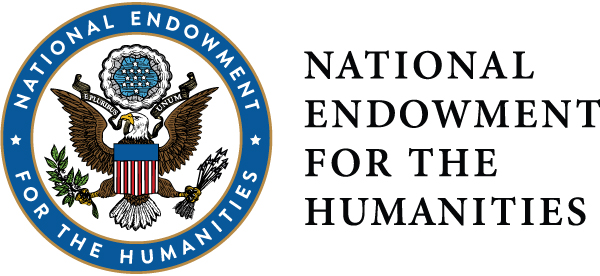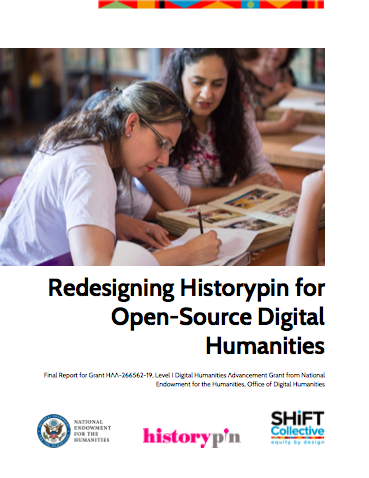 We’re excited to announce today that Historypin has been awarded a $324,903 grant to redesign and redevelop the platform, with guidance from a Digital Humanities Advisory Panel that will be showcasing new, collaborative projects on the new site in the coming year. The award also provides matching funds of $50,000 to amplify the investments of other contributors to the platform.
We’re excited to announce today that Historypin has been awarded a $324,903 grant to redesign and redevelop the platform, with guidance from a Digital Humanities Advisory Panel that will be showcasing new, collaborative projects on the new site in the coming year. The award also provides matching funds of $50,000 to amplify the investments of other contributors to the platform.
In 2019, we were privileged to receive a Level I Digital Humanities Advancement Grant from the National Endowment for the Humanities, Office of Digital Humanities, to take a step back with the 10 year old Historypin project. Together with a panel of esteemed colleagues including digital humanities scholars, community organizers, technologists, historians and other key users of the Historypin platform, we were able to assess some of the primary current and future needs and begin to plan for the next big iteration.
The documentation contained in this public white paper is intended to give an overview of the work conducted during the initial research and planning phase as well as layout a proposed direction moving forward. Thanks to the enormous amount of work that went into this collaborative effort (the long list of contributors is within the white paper of course!), it’s not difficult to summarize where the project is going. You’ll also find the abstract for our Level III Digital Humanities Advancement Grant at the very end of the white paper.
Today, the Historypin platform is free (though funded projects have advanced functionality), user-friendly, accessible online and open to scholars, community groups, digital humanities classrooms, and the general public. The site is used extensively by digital humanities scholars in universities and at large for research and documentation of historical sites, cultural geography, urban planning, geographical study of literature, and many more topics. The platform is routinely listed as a free resource in guides of digital humanities tools published by university libraries, and is used widely in university classes, library and information studies programs, and by individual scholars.
Since 2010, the website has attracted over 98,000 registered users around the world, over 4,000 of which are cultural heritage organizations, and over 34,000 unique collections have been created. The Historypin project has generated over $7 million in investments to humanities research and community history projects globally. Major funded partnerships have included Stanford University, the BBC, American Experience, the US National Archives and Records Administration, the National Library of Colombia, and many more. While the site is used globally, about a third of our users are in the United States, where this project has focused.
